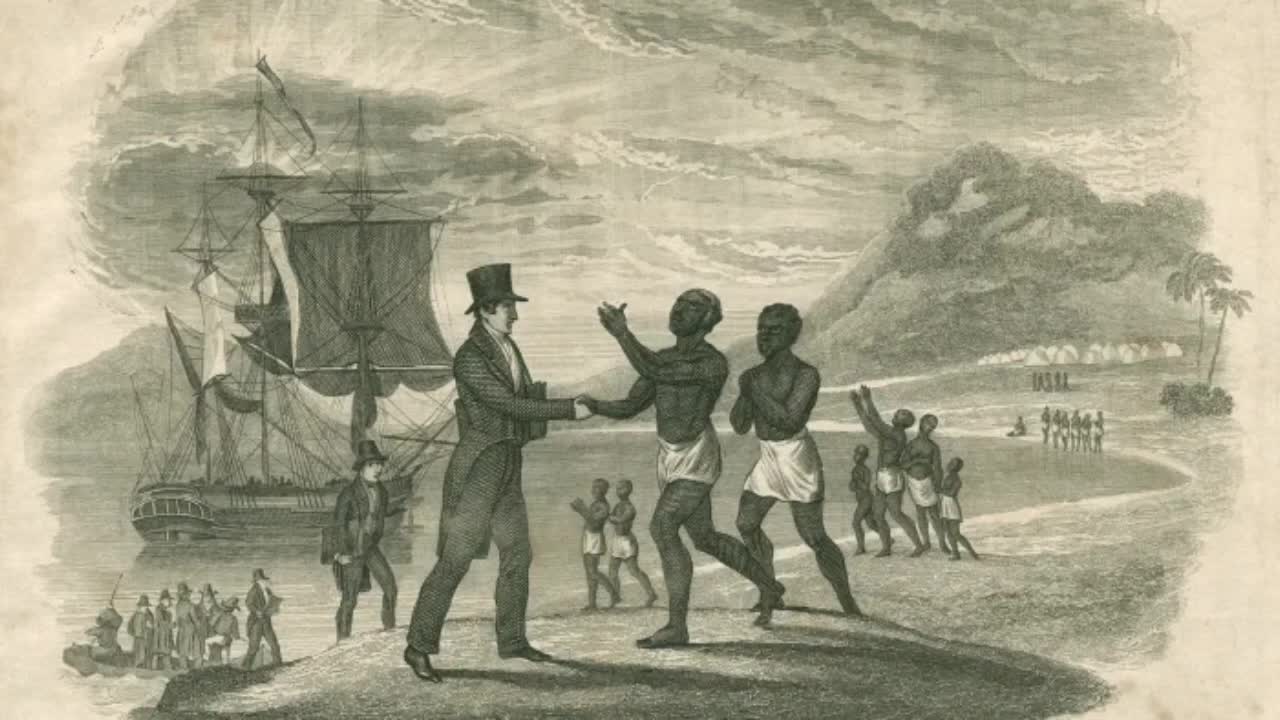Premium Only Content

Black History: When Abraham Lincoln Tried to Resettle Free Black Americans in the Caribbean
On the night of December 31, 1862, a day before he issued the final Emancipation Proclamation to effectively end slavery in America, President Abraham Lincoln signed a contract with Bernard Kock, an entrepreneur and Florida cotton planter. Their agreement: to use federal funds to relocate 5,000 formerly enslaved people from the United States to Île à Vache (“Cow Island”), a small, 20-square-mile island off the southwestern coast of Haiti.
Since the early 1850s, Lincoln had been advancing colonization as a remedy for the gradual emancipation of the nation’s enslaved. While he strongly opposed the institution of slavery, he didn’t believe in racial equality, or that people of different races could successfully integrate. And unleashing nearly 4 million Black people into white American society—North or South—was a political nonstarter. So despite the fact that most Black Americans in the 1850s had been born on U.S. soil, Lincoln advocated shipping them to Central America, the Caribbean or “back” to Africa. “If as the friends of colonization hope…[we] succeed in freeing our land from the dangerous presence of slavery; and, at the same time, in restoring a captive people to their long-lost father-land,” Lincoln said during his eulogy for statesman Henry Clay in 1852, “it will indeed be a glorious consummation.”
-
 1:01:09
1:01:09
Forgotten Black History
21 days agoDr. Ivan Van Sertima, For the People (1980)
723 -
 LIVE
LIVE
I_Came_With_Fire_Podcast
7 hours agoHalf the Gov. goes MISSING, Trump day 1 Plans, IC finally tells the Truth, Jesus was NOT Palestinian
323 watching -
 4:11:49
4:11:49
Nerdrotic
9 hours ago $23.16 earnedThe Best and Worst of 2024! Sony Blames Fans | Batman DELAYED | Nosferatu! |Friday Night Tights 334
139K28 -
 7:55:51
7:55:51
Dr Disrespect
13 hours ago🔴LIVE - DR DISRESPECT - WARZONE - SHOTTY BOYS ATTACK
202K28 -
 1:30:23
1:30:23
Twins Pod
12 hours agoHe Went From MARCHING With BLM To Shaking Hands With TRUMP! | Twins Pod - Episode 45 - Amir Odom
120K29 -
 1:02:30
1:02:30
Exploring With Nug
14 hours ago $2.56 earned2 Duck Hunters Missing After Kayak Capsizes!
49.5K2 -
 46:48
46:48
Mally_Mouse
7 hours agoLet's Hang!! -- Opening Christmas gifts from YOU!
61.1K1 -
 44:55
44:55
Athlete & Artist Show
20 days ago $2.04 earnedNHL 4 Nations Snubs, Was Hawk Tuah Coin A Scam?
60.6K -
 33:47
33:47
Stephen Gardner
13 hours ago🔥Pentagon Whistleblower UNLEASHES on Biden and Obama!
116K180 -
 2:20:30
2:20:30
The Dilley Show
14 hours ago $27.16 earnedRoger Stone in Studio plus Q&A Friday! w/Author Brenden Dilley 12/27/2024
95.6K20